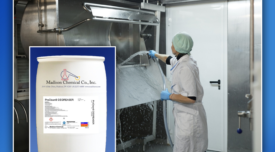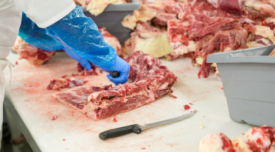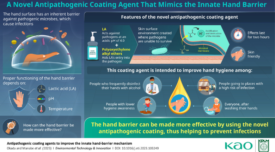Sanitation
BIZTRACKS
Scientists Develop Formulation That Boosts Antimicrobial Properties of Natural Hand Barrier
September 8, 2023
Never miss the latest news and trends driving the food safety industry
eNewsletter | Website | eMagazine
JOIN TODAY!Copyright ©2025. All Rights Reserved BNP Media.
Design, CMS, Hosting & Web Development :: ePublishing











